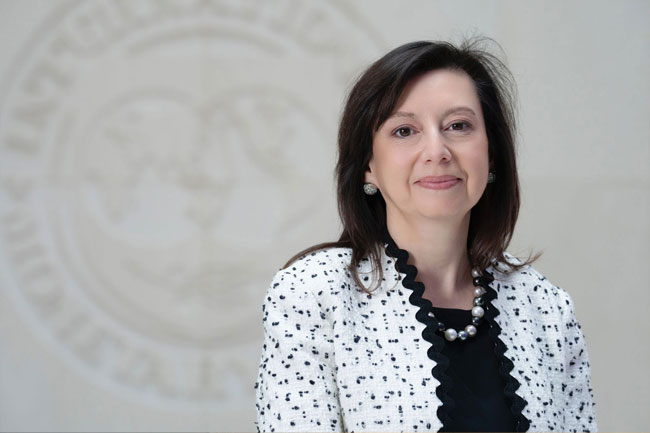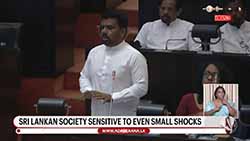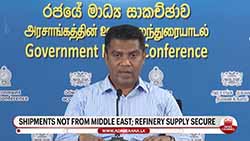Sri Lanka’s macroeconomic policies are starting to bear fruit - IMF
May 17, 2024 12:55 pm
The International Monetary Fund (IMF) has highlighted Sri Lanka’s commendable macroeconomic policies, rapid inflation decline, and steady economic growth.
Addressing a press briefing held on Thursday (16) in the Washington DC, the Director of IMF Communications Julie Kozack said “with respect to Sri Lanka’s economic performance, macroeconomic policies in Sri Lanka are starting to bear fruit. Commendable outcomes include a rapid decline in inflation, robust reserve accumulation and initial signs of economic growth while also preserving stability in the financial system. Overall programme performance has been strong.”
“IMF staff and the Sri Lankan authorities have reached a staff-level agreement on economic policies to conclude the second review of the four-year EFF-supported program and the 2024 Article IV Consultation. Once the review is approved by IMF Management and completed by the IMF Executive Board, Sri Lanka will have access to about US$337 million in financing”, she added.
Meanwhile, the IMF Communications Director further stated that the completion of the review by the executive board of the IMF requires two things – the implementation by the authority of the agreed prior actions and completion of the financing assurances review.
She also stated that this would confirm multilateral partners, financing contributions and the financing review will also assess adequate progress with debt restructuring.
Furthermore, Julie Kozack mentioned that the next step in respect to the debt restructuring is to conclude negotiations with external private creditors and to implement the agreements in principle with Sri Lanka’s official creditors.
“The domestic debt operations are largely completed. The initial debt restructuring negotiations with external bondholders ended in mid-April without an agreement and discussions are continuing with a view to reaching agreement in principles and on the official creditor side these agreements in principles are still needed to be finalised”, she added.












